Quintana: I live for the challenge
Colombian accepts comparison to Pantani as he targets the Giro-Tour double
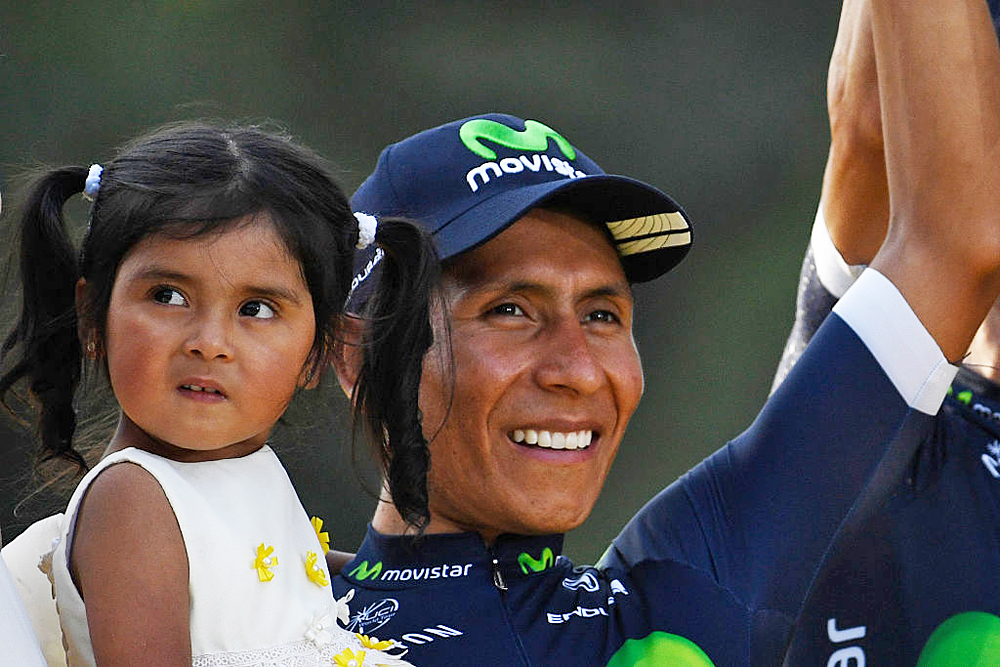
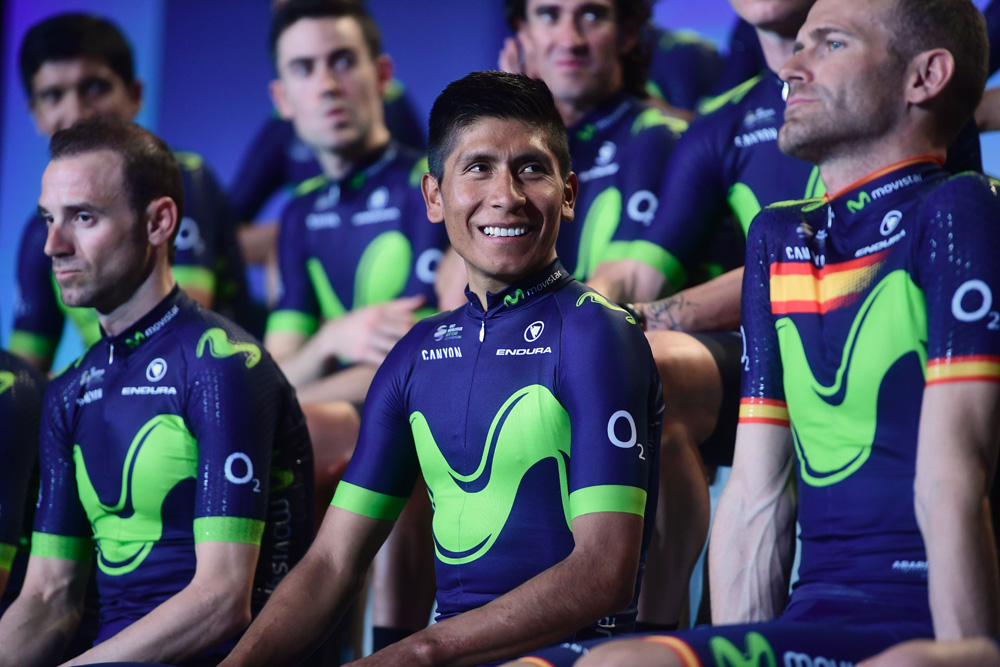
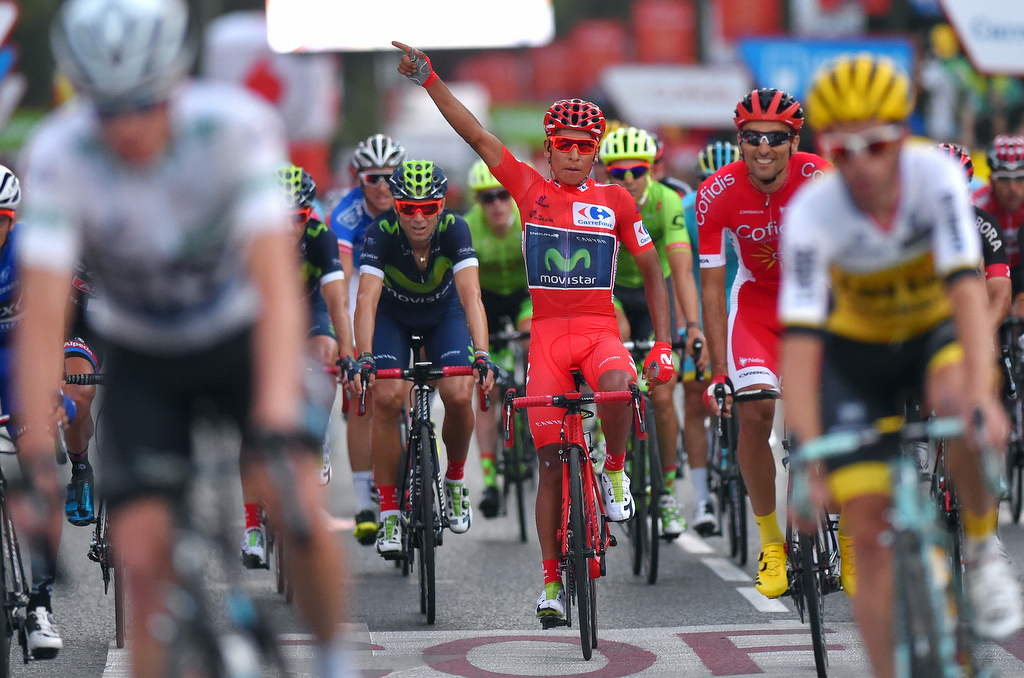
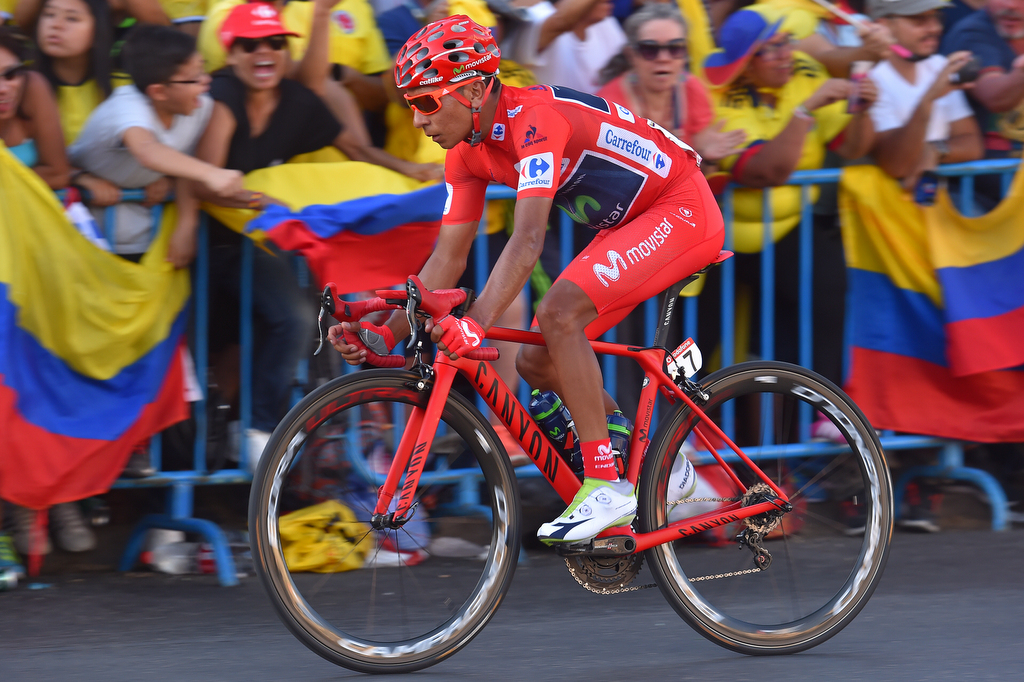
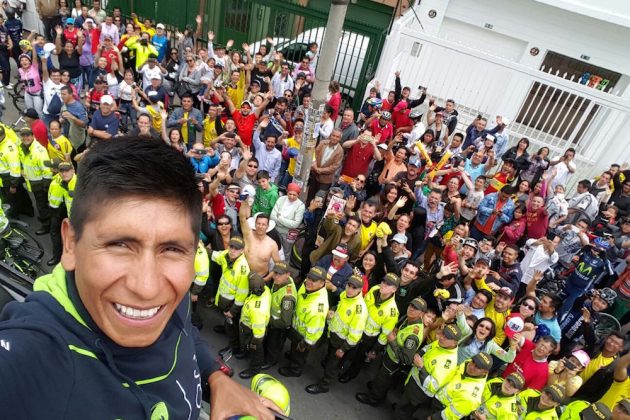
Nairo Quintana (Movistar) has happily accepted comparisons to Marco Pantani as he attempts to become the first rider since the Italian to win the Giro d'Italia and Tour de France in the same season.
Quintana considers Giro d'Italia - Tour de France double
Quintana confirms 'final decision' to attempt Giro-Tour double in 2017
Nibali praises Quintana for targeting Giro-Tour double
Quintana to make his Challenge Mallorca debut - News Shorts
Quintana: I have to win the Tour de France but I'm not a level below Froome
"I suppose I'm similar to Pantani, we're even built the same," Quintana said in a long interview conceded to Italian sports newspaper Gazzetta dello Sport, knowing that getting the Italian tifosi on his side could be useful when when he takes on Vincenzo Nibali and Fabio Aru in May.
"I was only eight and hadn't started cycling in 1998, but I can remember Marco. Our sport has always been widely followed in Colombia and his epic achievement stuck in my mind."
Pantani achieved the double in 1998. A year later he was suspended from the 1999 Giro d'Italia when a blood test before the mountain stage revealed his haematocrit level was above the accepted 50 per cent limit. The Pirata never overcame the disgrace and feeling of victimization of that day in Madonna di Campiglio, with his career and then his life spiraling out of control until his tragic death on St. Valentines Day 2004.
Few riders have tried to do the double since Pantani. Alberto Contador was the last but he suffered and only finished fifth at the Tour de France after winning the Giro d'Italia in 2015.
Quintana turns 27 on February 4 and is arguably entering the peak of his career. He is quietly spoken and a family man but also emotive and competitive.
"My childhood was always accompanied by taking risks and by challenges, by being competitive and wanting to win. I'm one of three brothers and we grew up driven by energy and did some crazy things," Quintana points out.
Get The Leadout Newsletter
The latest race content, interviews, features, reviews and expert buying guides, direct to your inbox!
"Going for the double is a challenge, a complicated challenge, because things are different compared to 1998. I don't know if things were more difficult back then because I never experienced that era but I'm sure it was different," Quintana said, without clarifying if he was talking about the widespread use of EPO in the 1990s or simply a change in the way Grand Tours are now raced.
"The impression I have is that in the past the time gaps at the end of a Grand Tour were bigger. Perhaps you only needed a stage to open a good gap. Now every day is a fight and the stages are decided by just a few seconds. That's why the Giro-Tour double is extra motivating. It's a challenge that grabbed our attention and so we decided to take the 'risk' involved."
Maths and emotions behind the decision for the double
The Movistar team claims the physiological data they have on Quintana’s performances backs up their strategy of taking a risk and targeting the Giro-Tour double in 2017. However, Quintana claims the final decision was emotional as much as it was mathematical.
Back to the Stelvio
Quintana's victory at the 2014 Giro d'Italia was built on his stage win to Val Martello that included the mighty Stelvio. Despite a snow storm and strong winds, the stage climbed to the 2,757-metre summit with riders struggling in the freezing conditions.
There was confusion about if the race organisers neutralised the racing over the summit but Quintana attacked on the descent, joined up with several other riders and went on to win the stage. He gained three minutes on his major rivals and took the pink jersey. Five days later in Trieste, he was crowned the first ever Colombian winner of the Giro d'Italia.

Stephen is one of the most experienced member of the Cyclingnews team, having reported on professional cycling since 1994. He has been Head of News at Cyclingnews since 2022, before which he held the position of European editor since 2012 and previously worked for Reuters, Shift Active Media, and CyclingWeekly, among other publications.